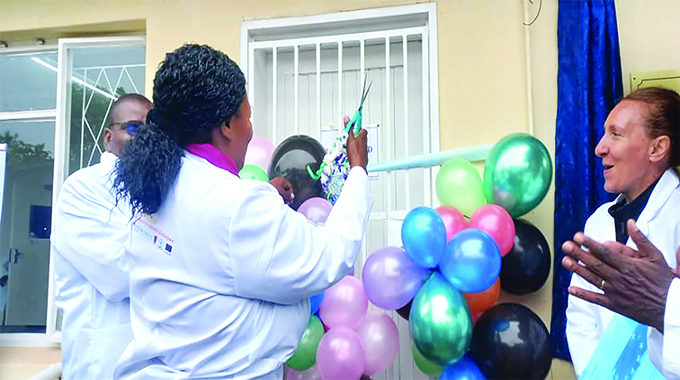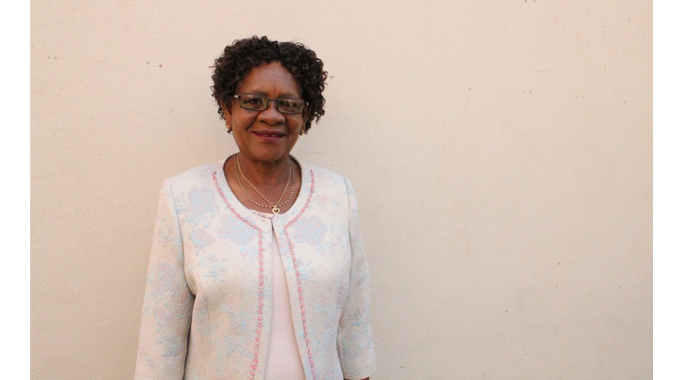WATCH: Mat South vet lab just what the doctor ordered

Sukulwenkosi Dube-Matutu, [email protected]
THE establishment of a new Provincial Veterinary Laboratory and an Animal Health Management Centre in Gwanda District is expected to boost livestock production and downstream industries in Matabeleland South Province by enhancing the diagnosis of critical animal diseases and improving access to vaccinations.
Yesterday the Government officially commissioned a new Provincial Veterinary Laboratory in Gwanda, an outcome of joint efforts with its partners, which has resulted in the refurbishment and equipping of four laboratories across the country.
This follows the launch of the Animal Health Management Centre in Manama two months ago to boost access to livestock vaccines.
The measures will go a long way in improving livestock disease surveillance and management while fostering the timely administration of vaccines, which are regarded as key to growing the national herd.
The newly commissioned Gwanda laboratory has been equipped under the Livestock Production Systems Zimbabwe (LIP-ZIM) Project, which has refurbished a similar facility in Masvingo Province.
The LIP-ZIM project is being implemented in Matabeleland South, Matabeleland North, Masvingo, Midlands and Manicaland. Its objective is to boost livestock production in ecological regions 4 and 5, which are favourable for livestock farming as opposed to cropping.
The new laboratory facility will ensure timely and accurate diagnosis of animal diseases unlike in the past when the province had to take samples to Harare. The new facility has a post-mortem unit, media room, wash-up section, main lab and an incinerator.
In a speech read on her behalf by provincial affairs permanent secretary, Mrs Latiso Dlamini-Maseko, Minister of State for Matabeleland South Provincial Affairs and Devolution, Dr Evelyn Ndlovu, said the new provincial laboratory was a big win towards realising the National Development Strategy (NDS1) and Vision 2030 goals.

Dr Evelyn Ndlovu
“This initiative will enable the province to diagnose and confirm animal diseases as well as research on animal diseases. We are all aware that a well-functioning laboratory system and network is essential for local, regional and international trade,” said Minister Ndlovu.
She said laboratories inform animal health personnel on the actual cause of diseases which leads to correct diagnosis and appropriate advice to farmers with regards to treatment.
“The refurbishment and equipping of the Gwanda provincial veterinary laboratory is good news for our farmers and stakeholders and speaks eloquently to the Government mantra that ‘no one and no place should be left behind’.”
Dr Ndlovu said the laboratory project will bring services closer to farmers hence increasing accessibility and decreasing turnaround time for sample processing, which buttresses devolution and decentralisation ideals.
She urged farmers and other stakeholders to fully utilise the facility to boost their operations.
Department of Veterinary Services director, Dr Pious Makaya, said accurate and reliable laboratory disease diagnosis in animals and humans has increased over the years.
“Inaccurate diagnosis of animal diseases results in huge economic losses as a lot of resources are committed towards disease control operations which in some cases will have been misdiagnosed,” he said.
“While efforts and resources will be targeted at the wrong disease, the actual disease will be spreading.
“The days of confirming disease infections based on clinical signs and experience only are gone.

European Union
“We are grateful to the European Union, ILRI, and LIP-ZIM project for supporting the Department of Veterinary Services laboratories in Gwanda and Masvingo.”
European Union representative, Ms Sarah Piccoli said what makes the LIP-ZIM project unique is its strong research component combined with the use of innovative approaches and models that aim at impacting livestock production while taking into account indigenous and local knowledge.
She said EU was a long-standing supporter of Zimbabwe’s agriculture and livestock sector through the Zimbabwe Agricultural Growth Programme (ZAGP), which has helped address gaps in beef, goat, pork, poultry and dairy value chains over the past five years in all provinces.
Ms Piccoli said the launch of the laboratory is a demonstration of what good partnerships and strong collaborations can do.
Funded to the tune of five million Euros by the European Union, the four-year project is being implemented by the International Livestock Research Institute (ILRI) with other consortium partners. It began in January 2020 and ends in December this year.
The intervention supports the implementation of the Transforming Zimbabwe’s Animal Health and Food Safety Systems for Future (SAFE) project and comes at a time when the country has declared war against the January Disease which has killed over 500 000 cattle in the past five years.
Improved disease surveillance as well as the adoption of climate change mitigation strategies are expected to boost livestock production especially in the southern region where animal husbandry is the mainstay economic activity. — @DubeMatutu










Comments